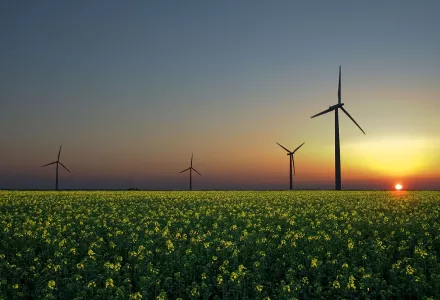
Andreas Goldthau calls for the world's 20 largest economies to take the helm in managing the transition from fossil fuels while keeping the global economy stable.
The world's energy system needs rebuilding. The Paris agreement to keep global warming “well below 2 °C above pre-industrial levels” demands that we replace fossil fuels with solar, wind, geothermal and biomass energy. The price tag is vast: investing US$120 trillion in energy projects between 2016 and 2050, at twice the current annual rate of $1.8 trillion a year, will deliver a 66% chance of achieving the Paris target. We must halve oil production and stop using coal to produce electricity.
The impact on the world's economy will be immense, and the shape of the energy sector will change fundamentally. Fossil fuels accrue their value mainly at the source — oil, gas and coal producers are among the richest companies in the world. But energy from the Sun, wind and tides is abundant and effectively free. Value can be derived from these sources by supplying devices and services to consumers and industry. In economic terms, energy assets will move further up the value chain, from commodities to technologies.
There will be winners and losers. Technology leaders of nations in the Organisation for Economic Co-operation and Development (OECD) and China will benefit most. Countries lacking technology and capital, mainly in the global south, will lose out. Those that are rich in fossil fuels, such as Russia, Saudi Arabia and Australia, could become unable to sell oil or coal. The knock-on effects will spiral — the falling tax revenues and account balances of countries and companies with depreciating assets could spell another global financial crisis.
To avert this, the low-carbon transition needs to be governed globally. Three factors are key: credible and legitimate leadership; information about climate-related risks to guide investment; and global partnerships to advance low-carbon technology.
Goldthau, Andreas. “The G20 must govern the shift to low-carbon energy.” Nature, June 7, 2017





